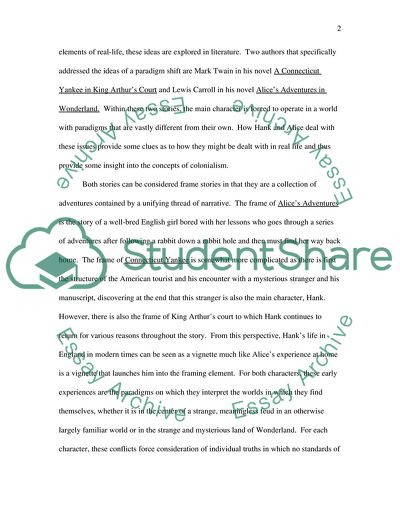A Connecticut Yankee and Alice: Logic, Paradigms, and Human Nature Essay Example | Topics and Well Written Essays - 1500 words. https://studentshare.org/literature/1727726-a-connecticut-yankee-and-alice-logic-paradigms-and-human-nature
A Connecticut Yankee and Alice: Logic, Paradigms, and Human Nature Essay Example | Topics and Well Written Essays - 1500 Words. https://studentshare.org/literature/1727726-a-connecticut-yankee-and-alice-logic-paradigms-and-human-nature.


